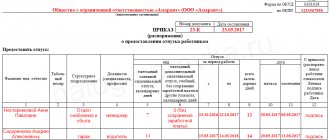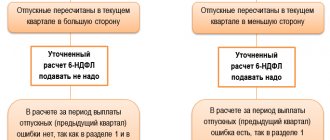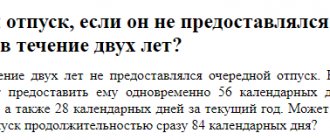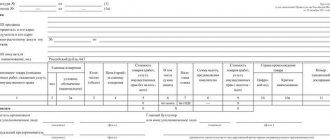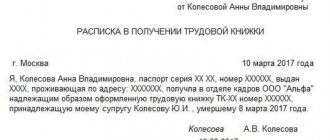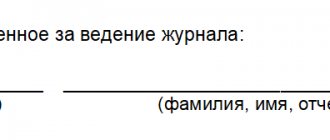The order of granting paid vacations is established annually by the vacation schedule - this provision of Art. 123 of the Labor Code of the Russian Federation is remembered by almost all employers and in mid-December they already have a ready and approved vacation schedule. But it is not always executed as clearly as stated.
In many cases, neither the employee nor the employer can predict in advance the exact time for going on vacation. On the part of the employer, the decision to take an employee’s vacation unscheduled can be influenced not only by the employee’s requests and their own interests, but also by external circumstances. And the notorious “production necessity” may arise spontaneously and outside the plans of the employer himself, but in this case, the transfer of vacation is possible only with the written consent of the employee and no later than for the next working year (Part 3 of Article 123 of the Labor Code of the Russian Federation).
On the employee side, plans change for a variety of reasons.
Therefore, it is often possible to state at the end of the year that the vacation schedule was only partially fulfilled, while the bulk of vacations were not granted according to the schedule. And here the HR officer and accountant feel uneasy. First of all, it’s scary because it’s unclear whether the employer will face punishment for the fact that the schedule was executed so poorly, but at the same time everyone (both employees and employer) was satisfied. It’s even worse if the requirements for advance notice and payment three days before the vacation were not met.
But let's look at everything in order.
Is it possible to transfer at the request of the employee under the Labor Code?
The procedure for transferring annual leave is stated in Art. 124 Labor Code of the Russian Federation.
The reason for transferring vacation pay may be:
- illness during vacation - how to cope;
- going to work on vacation to perform government duties;
- reasons specified in local acts of the organization;
- violation by the employer of the Labor Code of the Russian Federation - the employee was not notified of the vacation 2 weeks in advance or did not receive vacation pay 3 days before it began.
In these cases, the employer is obliged to postpone the rest period. The Labor Code does not contain other reasons for the mandatory transfer of vacation time at the request of the employee.
For these reasons, the initiative always comes from the employee.
If a person went on vacation and got sick or went to work to perform job duties, then he can write to the employer an application to transfer unused vacation days -.
You can transfer your vacation time either within the current year or to the next year. This point is agreed with the employer. The decisions made are recorded in schedule T-7.
If there are no specified reasons for the transfer, and the employee for personal reasons does not need to go on vacation this year, then he also has the right to apply to management with a request to postpone the vacation time to the next year. The request is made in writing - . In this case, the employer can either agree with the request or refuse it.
If the employer refuses the employee, he will go on vacation on the dates specified in the vacation schedule. If you agree, vacation dates for the next year are selected and an order is issued by the employer, and changes are made to the schedule for the current year.
To obtain the employer’s consent to the transfer, you need to explain in as much detail as possible why such a need arose. You can specify the general wording “family circumstances”, but it is recommended to provide explanations in order to increase the chances of approval.
Examples of valid family circumstances for transfer can be found here.
Features of filling out the vacation schedule
The mechanism for filling out the vacation schedule can be prescribed in the collective agreement, PVTR or other internal document of the employer. Rostrud believes that the vacation schedule can be not only for the company as a whole, but also for a separate structural unit.
This point is relevant for large organizations with a large number of employees. In such a situation, the vacation schedule is formed by department heads, who then submit documents to the human resources department, whose specialists fill out a consolidated vacation schedule for the company as a whole.
The vacation schedule must contain information about when and for what duration the vacation will be for each employee. The duration depends on the number of days to which the employee is entitled and the number of vacation days not taken before the start of 2022.
When filling out the schedule, you need to remember not only about old, but also about newly hired employees who did not work for six months at the beginning of the year. The right to vacation in the first year of employment appears after six months of continuous work in a particular company. Accordingly, when filling out the document, you need to take into account that new employees can use their allotted rest days until the end of 2022.
Is it possible to transfer at the initiative of the employer?
Article 124 of the Labor Code of the Russian Federation contains an important rule for employers: failure to provide leave for more than two years in a row is prohibited. If an employee rests less frequently, this will be a violation of labor laws for the employer. If the labor inspectorate finds out about this, liability will follow in the form of a fine.
Thus, in order to protect itself from violations, the employer needs to ensure that employees take rest at least once every 2 years.
As for the employee, he does not incur any losses from the transfer of vacation to subsequent years. The annual vacation does not expire and is not lost.
If it is not used in the current year, it will be used in the next or subsequent year. And if during the entire period of work the employee does not take the allotted vacation time, then he will be able to receive monetary compensation for unused days.
Can an employer initiate the transfer of annual leave? Management may offer the employee to postpone his vacation to another period or to the next year, but this procedure can only be formalized in one case - if the employee has given his consent.
A proposal (notification) to postpone vacation days for an employee is drawn up in writing. The employee’s consent (or refusal) must also be obtained in writing - either a mark is placed on the notification form, or the employee writes a statement of consent.
If written consent to postpone the vacation is not received, then the employer, on his own initiative, unilaterally does not have the right to postpone the vacation time.
If the worker agrees, an order is issued indicating new terms for the provision of rest. Changes are being made to the vacation schedule.
The reason for the transfer at the initiative of the employer is usually production necessity, which may conceal the need to be present at work due to:
- absence of a partner (fell ill, took leave at his own expense);
- heavy workload due to seasonality, large influx of buyers and clients;
- introduction of new equipment, production lines, etc.
The list of reasons is unlimited, but regardless of why the employer needed to reschedule the employee’s vacation, before doing this, you need to make sure the employee’s consent.
Additional paid time off
Certain categories of workers have the right to additional days of paid leave (teachers, doctors, civil servants, disabled people working in harmful and dangerous conditions, with irregular hours, and other categories). Days are paid according to the same rules as the main part of the annual vacation.
However, additional leave differs from the main leave in that the first can be replaced with monetary compensation, and the second must be taken off. Compensation for the main part can only be received upon dismissal.
Is it possible to transfer additional vacation days? The answer to this question depends on what the additional days are provided for, what conditions are stipulated in the employment contract with the employee, and the internal local acts of the organization.
In general, the Labor Code of the Russian Federation does not contain a direct prohibition on the transfer of additional days of paid leave.
The duration of annual leave is always specified in the employment contract; if additional days are provided, this is also stipulated in the terms of the agreement. Employers often add whether these days can be transferred to the next year or not.
In fact, the prohibition on carryover in an employment contract is not correct. The Labor Code of the Russian Federation does not prohibit transfers. If the employee did not use additional vacation days, then they cannot be burned out; it is logical that the employee can either receive compensation for them, or take them off later - next year. If an employee wants to transfer additional vacation days, then he has every right to do so; to do this, it is enough to write an application.
Local acts also cannot establish a ban on transfers, since this will worsen the situation of workers in comparison with the conditions prescribed in the Labor Code of the Russian Federation, which is not allowed.
Useful video
Does unused vacation expire, or can it be transferred to the next year - see the answer in the video:
General procedure for calculating vacation pay
The rules for calculating the average salary for calculating vacation amounts are defined in Art.
139 of the Labor Code of the Russian Federation and the Regulations on the specifics of the procedure for calculating average wages, approved by Decree of the Government of the Russian Federation of December 24, 2007 No. 922 (hereinafter referred to as Regulation No. 922). Thus, the average daily earnings for vacation pay and compensation for unused vacations are calculated for the last 12 calendar months by dividing the amount of accrued wages by 12 and 29.3 (the average monthly number of calendar days). Before April 2, 2014, the indicated number was 29.4.
To calculate the average salary, all types of payments provided for by the remuneration system used by the employer are taken into account, regardless of the sources of these payments (clause 2 of Regulation No. 922), in particular:
wages accrued according to salary (tariff rates), as well as issued in non-monetary form; allowances and various additional payments to salaries (tariff rates) for professional skills, class, length of service, knowledge of a foreign language, combination of professions (positions); payments related to working conditions, including those determined by regional regulation of wages (in the form of coefficients and percentage bonuses to wages), increased wages for heavy work, work with harmful and (or) dangerous and other special working conditions, for work at night, payment for overtime work and work on weekends and non-working holidays; bonuses and remunerations provided for by the remuneration system of this employer.
All named payments must relate specifically to the billing period in order to be included in the calculation of average earnings. Thus, if an annual bonus is accrued for indicators of those periods that are not included in the calculation period, this bonus is not taken into account in calculating average earnings. If the bonus based on the results of work for the year is accrued after the payment of vacation pay, the average daily earnings should be recalculated taking into account the bonus and an additional payment should be given to the employee (letter of Rostrud dated May 3, 2007 No. 1253-6-1).
Bonuses for professional holidays, anniversaries and memorable dates and based on work results can be taken into account when calculating vacation pay, if they are provided for by the remuneration system and accrued in the billing period (letter of the Ministry of Finance of Russia dated March 22, 2012 No. 03-03-06/1/150 , Ministry of Health and Social Development of Russia dated October 13, 2011, No. 22–2/377012–772).
Social payments and payments not related to wages are not taken into account when calculating the average salary. This applies to material assistance, payment of the cost of food, travel, training, utilities, recreation, etc. (clause 3 of Regulation No. 922).
conclusions
Transferring the annual rest period to the next year is permitted. The initiative can come from the employee or the employer. An employee has the right to demand a transfer if his rights regarding the provision of rest and its payment are violated, or during the vacation period he becomes incapacitated or performs government duties.
In other cases, the issue is resolved by mutual agreement. Reasons such as “family circumstances”, “production necessity” are not mandatory. In each such case, the issue is resolved individually.
How many times can I reschedule?
There is no specific number of times that you are allowed to make changes to your vacation schedule. The legislation does not establish a clear framework for this case.
The only prohibition is failure to provide an employee with rest for 2 years in a row. In this case, the employee can file a complaint with the labor inspectorate or court.
Personal income tax
As a rule, issues with personal income tax do not arise. The tax is withheld at the time of payment (clause 10, clause 1, article 208, clause 4, article 226 of the Tax Code), the tax base is reduced by all tax deductions due in the current month of payment, there is no need to distribute deductions between vacation months.
This order follows from paragraph 3 of Art. 210, pp. 1 clause 1 art. 223, paragraph 1, art. 224 and art. 218–221 Tax Code and explained by letters of the Ministry of Finance No. 03-04-08/8-139 dated 06.06.12 (communicated to the tax inspectorates by letter of the Federal Tax Service No. ED-4-3/9698 dated 06.13.12), No. 03-04-06/ 8-306 dated 11/15/11. Similar conclusions are confirmed by the judges (resolutions of the Presidium of the Supreme Arbitration Court No. 11709/11 dated 02/07/12, FAS West Siberian District No. A67-7726/2012 dated 09/12/13, Moscow District No. A40-5156/11-90-21 dated 02/09/12) .

